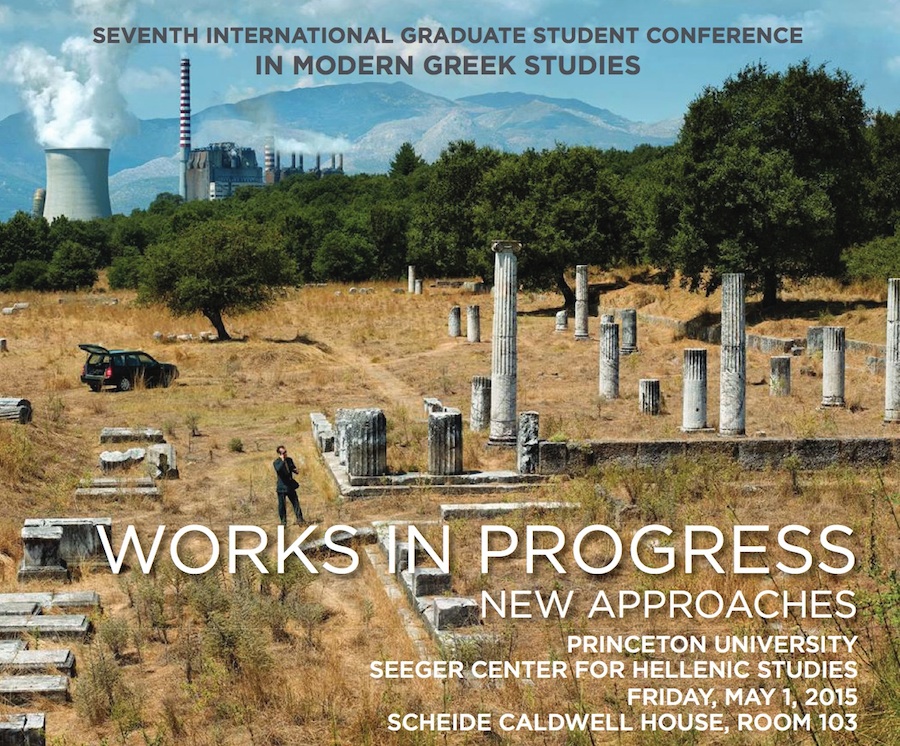Seventh International Graduate Student Conference in Modern Greek Studies, Princeton University, May 1, 2015
The program for the Seventh International Graduate Student Conference in Modern Greek Studies “Works in Progress: New Approaches” includes a paper by Anna Calia (École Pratique des Hautes Études), “Late Byzantine Libraries Between East and West: The Case of John Dokeianos.”
Abstract
Unlike many well-known cases of Byzantines who sought refuge in the West, a full-round study of the Byzantine scholars who remained in Istanbul after 1453 has not been attempted yet. Among them the case of John Dokeianos is particularly relevant. He wrote rhetorical works for the Palaiologan court of Mistra and after the Ottoman conquest in 1460 he moved to Istanbul, where he worked as teacher at the Patriarchate and as copyist at the court of Mehmed II (1451–81).
Dokeianos also held an eclectic book collection which he enlarged in the Ottoman capital, as an autograph list at the end of a manuscript shows. His library encompassed different literary genres, sacred and profane, poetry and history, rhetoric and liturgy, classical Attic texts and Byzantine authors. It tells us a lot about the literary tastes of 15th century Byzantine humanists and it shows that interest in classical texts was equal to that in sacred literature. Dokeianos’ deep knowledge of ancient history, rhetoric and philosophy - as it emerges from his imperial orations - is also mirrored in the content of his library collection. One manuscript in particular bears relevant details on his acquaintance with Plethonic works and it also features notes showing that in the later years he became critical of Pletho. Moreover, the very same manuscript hints at the reading of Pletho in the Ottoman capital in the years when Gennadios Scholarios condemned the philosopher of Mistra. Finally, his library is of crucial importance because very little is known about private libraries in the early Ottoman Empire. Here we therefore have a rare case of a 15th century Byzantine library collection which travelled eastwards from Morea to Istanbul instead of being taken to the West.
Using an interdisciplinary approach encompassing book history, paleography and cultural history, I will examine the problems posed by the reconstruction of a late Byzantine private library, drawing comparisons with book collections from the western medieval world. I will present the manuscripts owned by Dokeianos which I managed to identify on the ground of paleographical analysis. I will trace the development of his library from the years at the Byzantine court of Mistra to those in Istanbul, providing an account of the fate of his books some of which remained in the East after the 15th century.
